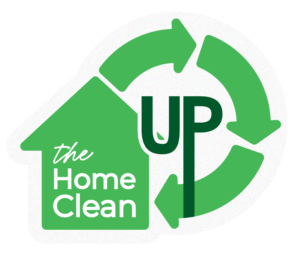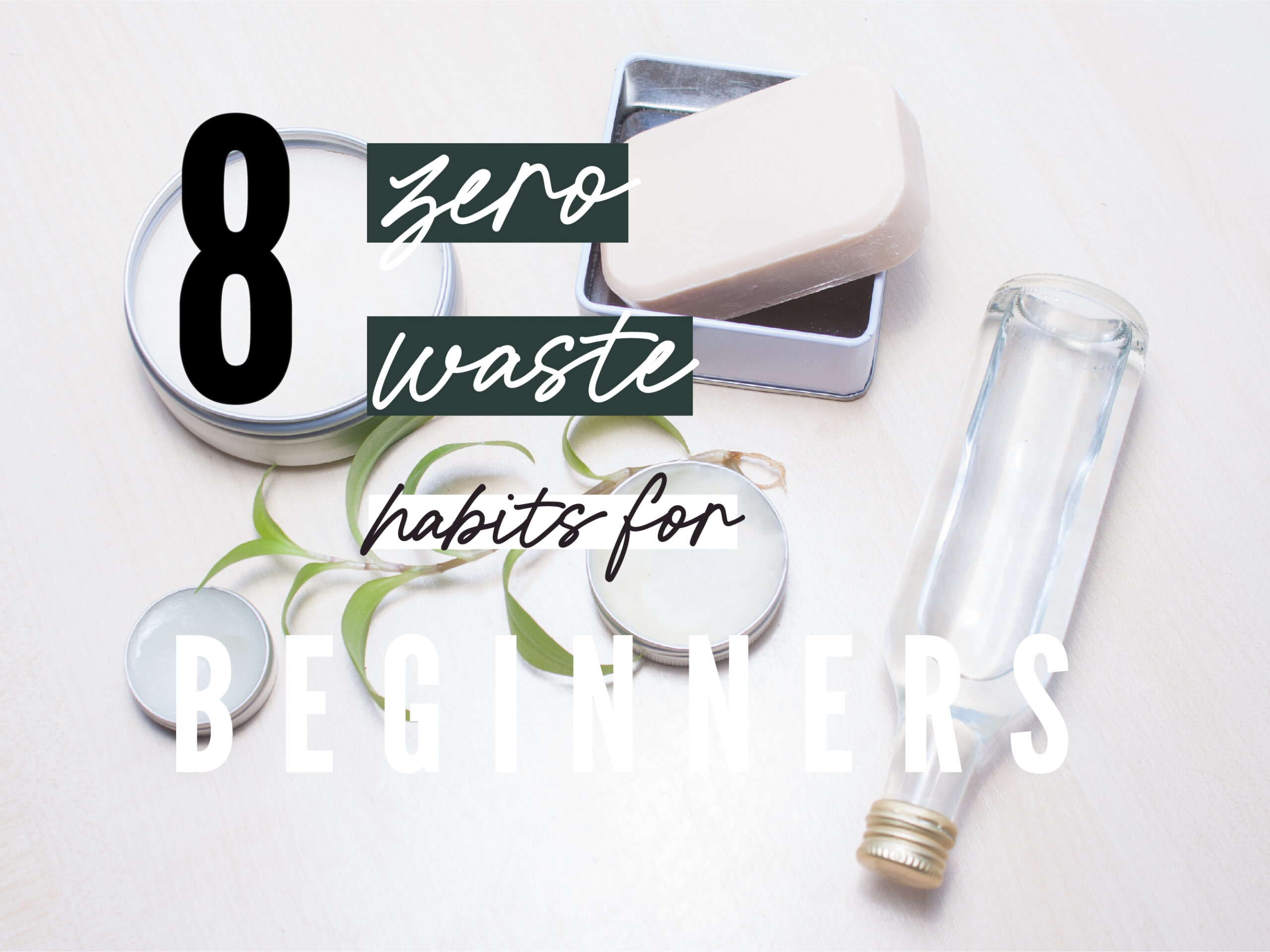In an age of growing environmental awareness, adopting zero waste habits has become a crucial step towards reducing our ecological footprint. The zero waste movement promotes a lifestyle that aims to minimize waste production, conserve resources, and contribute positively to the planet. By making mindful choices in our daily routines, we can significantly reduce the amount of waste that ends up in landfills and oceans. Let’s explore eight zero waste habits that you can easily incorporate into your daily life, contributing to a healthier planet for future generations.
1) Using Mason Jars
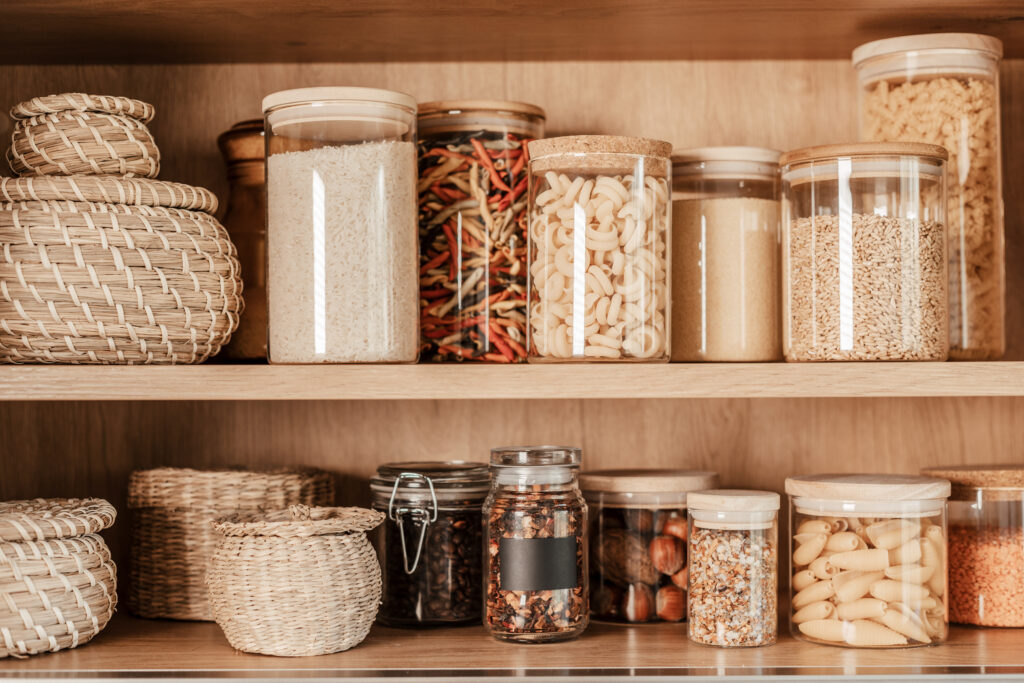
One of the simplest ways to reduce waste is by replacing disposable containers with reusable alternatives. Mason jars are versatile, eco-friendly, and perfect for storing everything from pantry items to leftovers, dry goods, oatmeal, herbs and juices. Their airtight seals keep food fresh and prevent unnecessary plastic waste. We suggest upgrading to reusable lids for food storing as they are longer lasting than the original tin lids which rust over time. Mason jars are a great and easy zero waste product to introduce into your daily routine. Mason jars are a great alternative for lots of kitchen solutions, our favorite being a reusable glass of water.
2) Beeswax Wraps
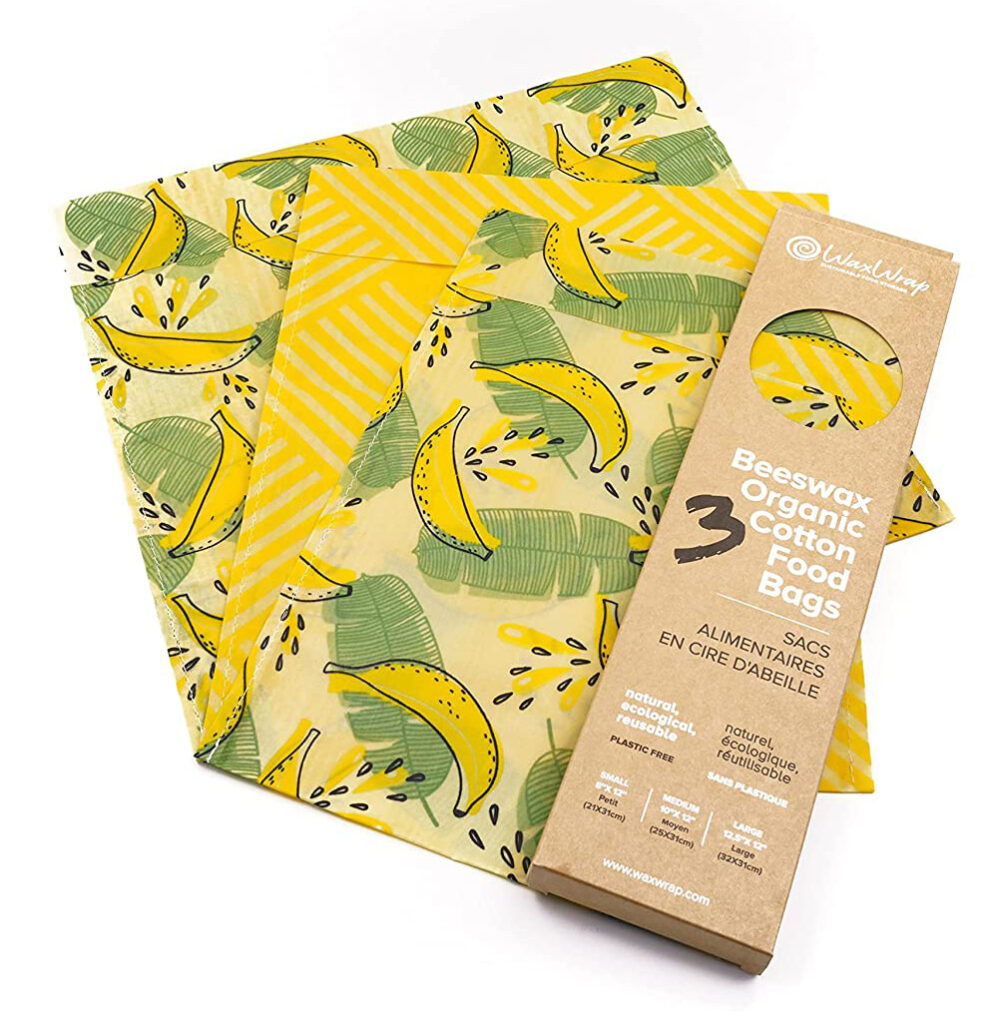
Bid farewell to single-use plastic bags and opt for Beeswax Wraps over plastic cling wrap and aluminum foil. Beeswax wraps come in many different sizes and colors, finding creative patterns on Etsy is easy and makes your fridge super unique and green! A Beeswax Bag design makes storing leftovers like pizza, treats, fruits and vegetables quick and easy. Both designs wraps and bags reduce the need for disposable packaging and promote a waste-free lunch.
3) Carry Reusable Utensils
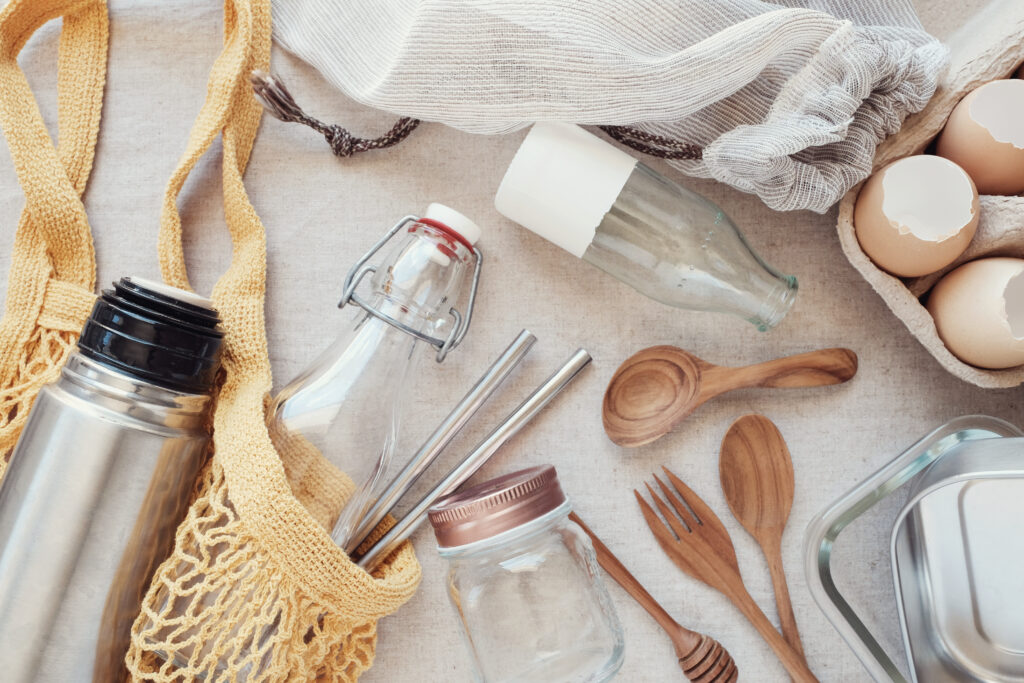
Eating out often involves using disposable utensils, contributing to unnecessary waste. By carrying your own reusable utensil set, you can enjoy your meals guilt-free, knowing you’re minimizing your environmental impact. Similar to reducing the consumption of single-use straws, bamboo made utensils are the best alternative to plastic. Provide your family with reusable utensils and you will actively avoid contributing to the below statistic of the astronomical amount of disposable utensils used.
“People in the United States alone use 40 BILLION pieces of single-use plastic cutlery each year.”
Habits of Waste.org
Rely on yourself to have reusable cutlery when going out of the house as many companies do not provide this simple service to its consumers.
4) Cloth Towels Over Paper
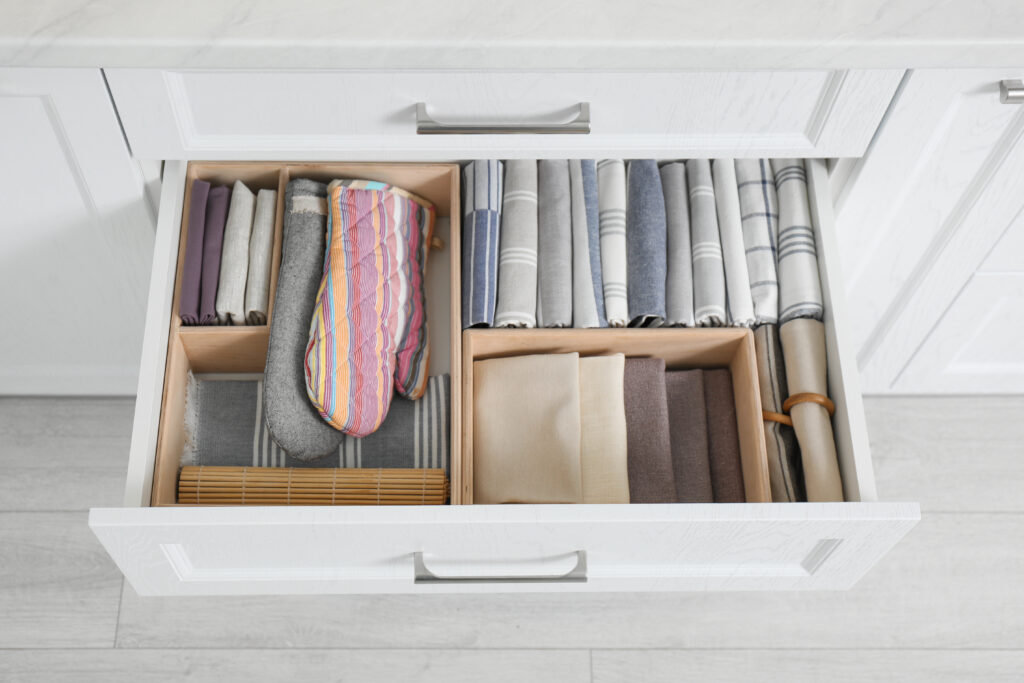
Ditch paper towels in favor of reusable cloth towels. Whether in the kitchen or bathroom, cloth towels can be washed and reused, significantly cutting down on paper waste and saving you money in the long run. It has become trendy to have individual bathroom hand towels and an accessible laundry bin, this way each guest can find comfort in a clean towel every time.
Swap single use disposable face wipes for an organic reusable makeup remover pads. When washing these, be sure to sort in a mesh zipper bag before tossing in your machine, let air dry. Elevate your guest bathroom by having eco friendly options like individual face pads with moisturizer and face cleanser. Have an available laundry bin ready!
5) Using Reusable Grocery Bags
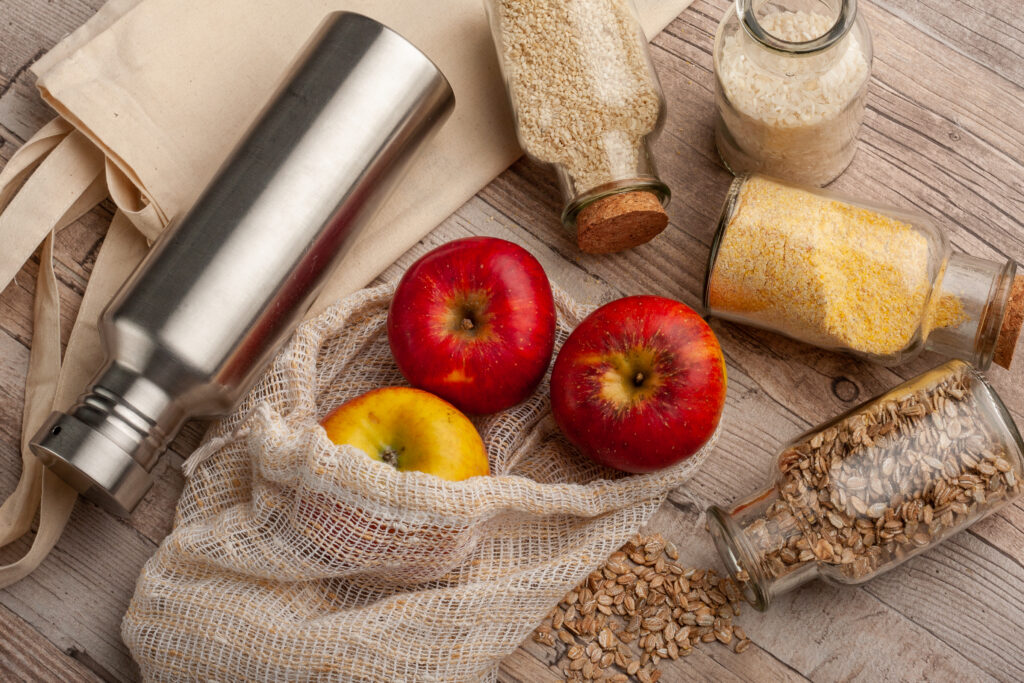
Plastic bags are among the leading pollutants in our environment. Eight states have banned single use plastic bags due to its environmental impacts and damaging effect within the recycling systems. Please ditch plastic or paper bags as reusable is the future of shopping! Reusable fruit/veggie bags are super cute and will catch many complimenting eyes while grocery shopping! They also come in a variety of styles and materials which can be custom to your preference; all of which are easy to throw in the wash after each use! By using reusable grocery bags made from cloth or other sustainable materials, you can help reduce the demand for single-use plastics and prevent them from ending up in our oceans and landfills.
6) Reusable Water Bottle & Bringing a Cup to Your Favorite Coffee Shop
Single-use plastic water bottles are a major source of pollution. Investing in a high-quality reusable water bottle not only helps keep you hydrated but also reduces plastic waste and conserves resources. Coffee culture is deeply ingrained in many societies, but it often generates excessive waste through disposable cups. Consider carrying a reusable coffee mug and asking your favorite coffee shop to use it instead. Many cafes even offer discounts as an incentive for this eco-friendly choice.
7) Buying in Bulk
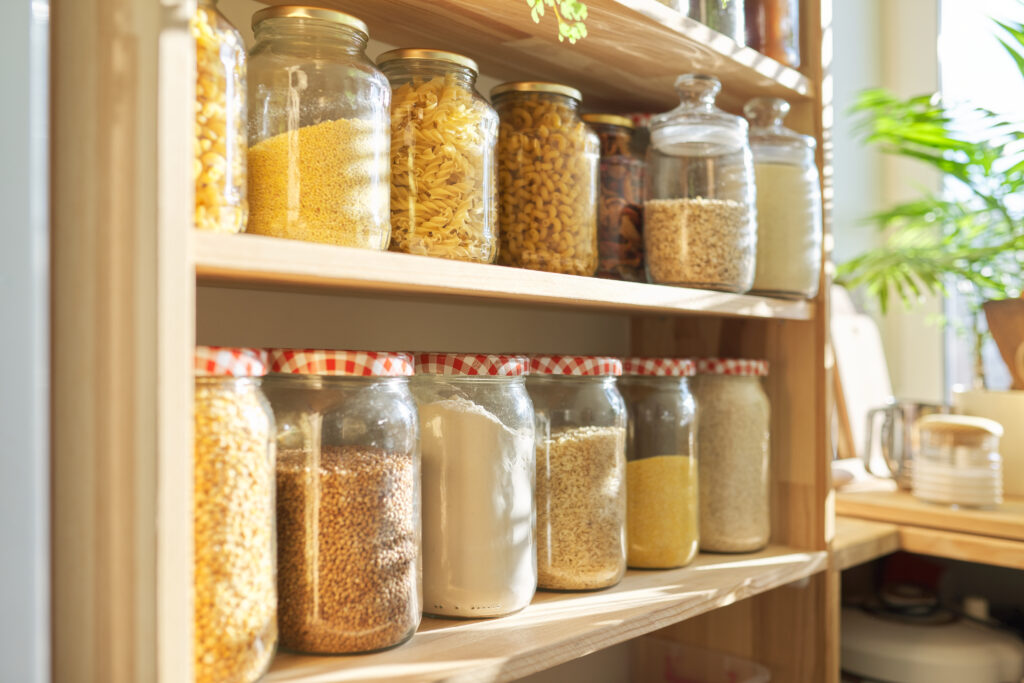
Buying items in bulk not only reduces packaging waste but also often saves you money. Opt for products without excessive packaging, and remember to bring your reusable containers to refill items like grains, nuts, and spices. Precycling is important when shopping in bulk, while yes brand matters, packaging is an important part of purchasing power. Likely the local and smaller businesses use better packaging compared to big name brands.
8) Recycling with a Terracycle Zero Waste Box
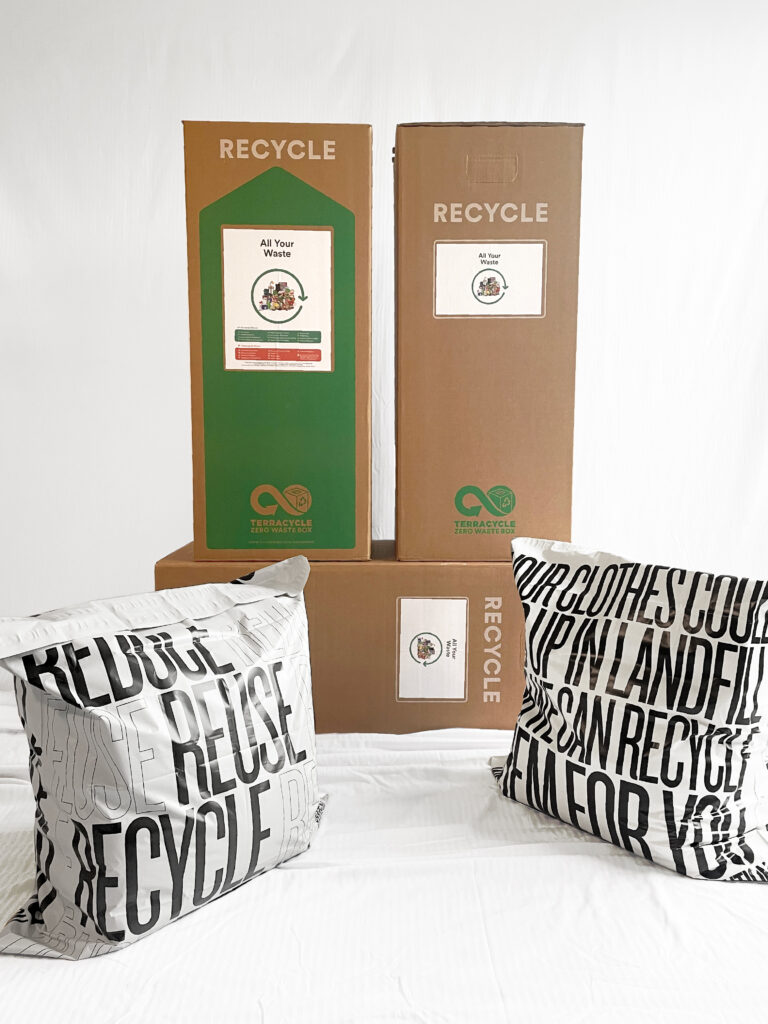
Despite our best efforts, some items may still end up being non-recyclable. Terracycle’s zero waste boxes provide a solution. These specialized recycling bins accept items that are traditionally hard to recycle, ensuring that even these materials are diverted from landfills. The Zero Waste Box is great for recycling bulk packaging. This way you can buy a year’s worth of almonds in bulk and know that like a squirrel you are also zero waste.
Embracing a zero waste lifestyle is not just about reducing waste—it’s about creating positive change for our planet. By adopting these nine simple habits, you can contribute to a greener, cleaner, and more sustainable future. Remember, even small actions add up over time, and collectively, we can make a significant impact on the health of our environment. So, let’s commit to these zero waste habits and inspire others to join the movement for a brighter tomorrow.
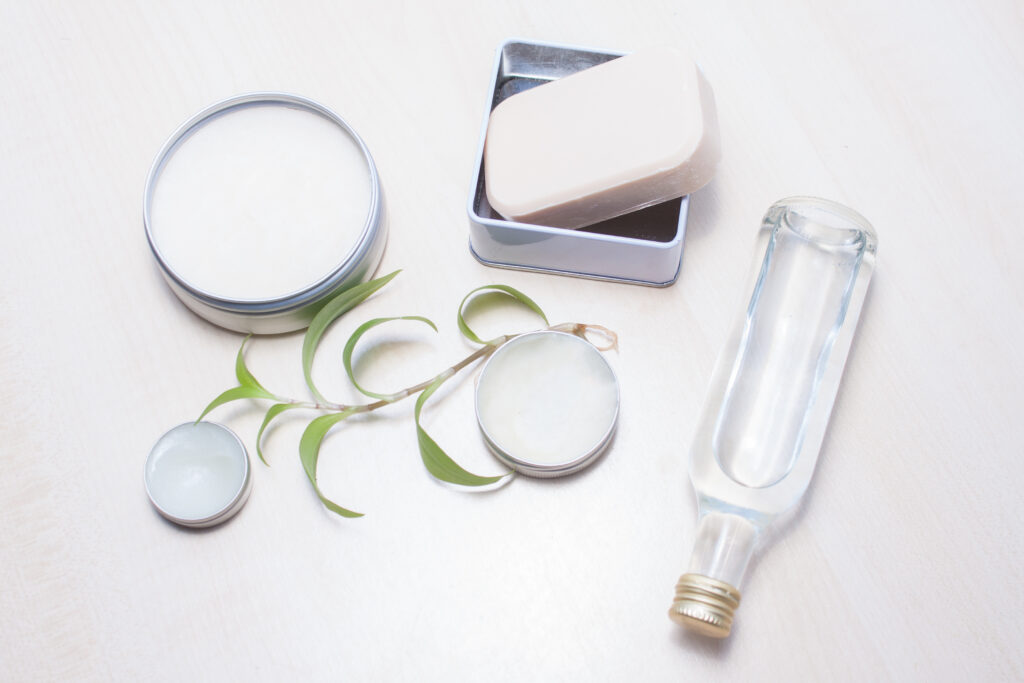
Written By
Alexander Coronado
